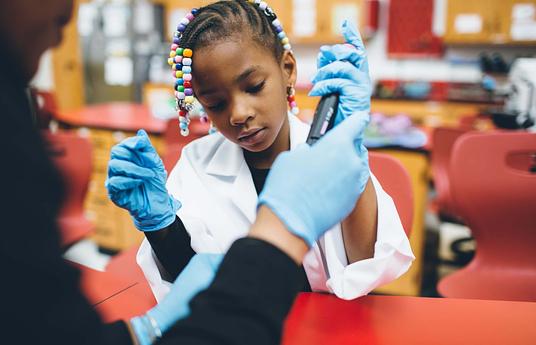According to Wikipedia, it has been predicted that by 2030, almost half of the world's youth will be in Africa, as the number of youths on the African continent will have increased to 42%. This means that the number of young people entering the workforce each year will join millions of others to search for better sources of livelihood.
Our solution equips school educators with the practical skills, knowledge, curriculum framework and strategies needed to excel in teaching Science, Technology, Engineering and Mathematics (STEM subjects). At STEMi Makers of Africa, we are committed to revolutionizing traditional curricula to meet the demands of the 21st century, improve teaching materials while ensuring students are equipped with the skills needed to strengthen the social fabric of society and ready to excel in the global workforce.
In 2020, STEMi Makers Africa emerged finalist in the Falling Walls Engage, Berlin for redefining STEM Education and breaking the wall of Inheriting fragmented and disconnected education institutions in Africa.
We also won the Silver Stevie Award, USA (Organization of the Year, 2020)
At STEMi Makers Africa, we are planning ahead not to leave the younger generation feeling displaced and inheriting a disconnected world than we live in today because the future economic growth of Nigeria depends on an aligned and a future-focused system that supports developmental efforts in generating young talents needed to become self-reliant and problem-solvers using Science, Technology, Engineering, Maths and Innovation.
We Support educators in the integration and application of the Engineering Design Process (EDP) across curriculum content designing by project-based learning resources accessible from our mobile app and curriculum


